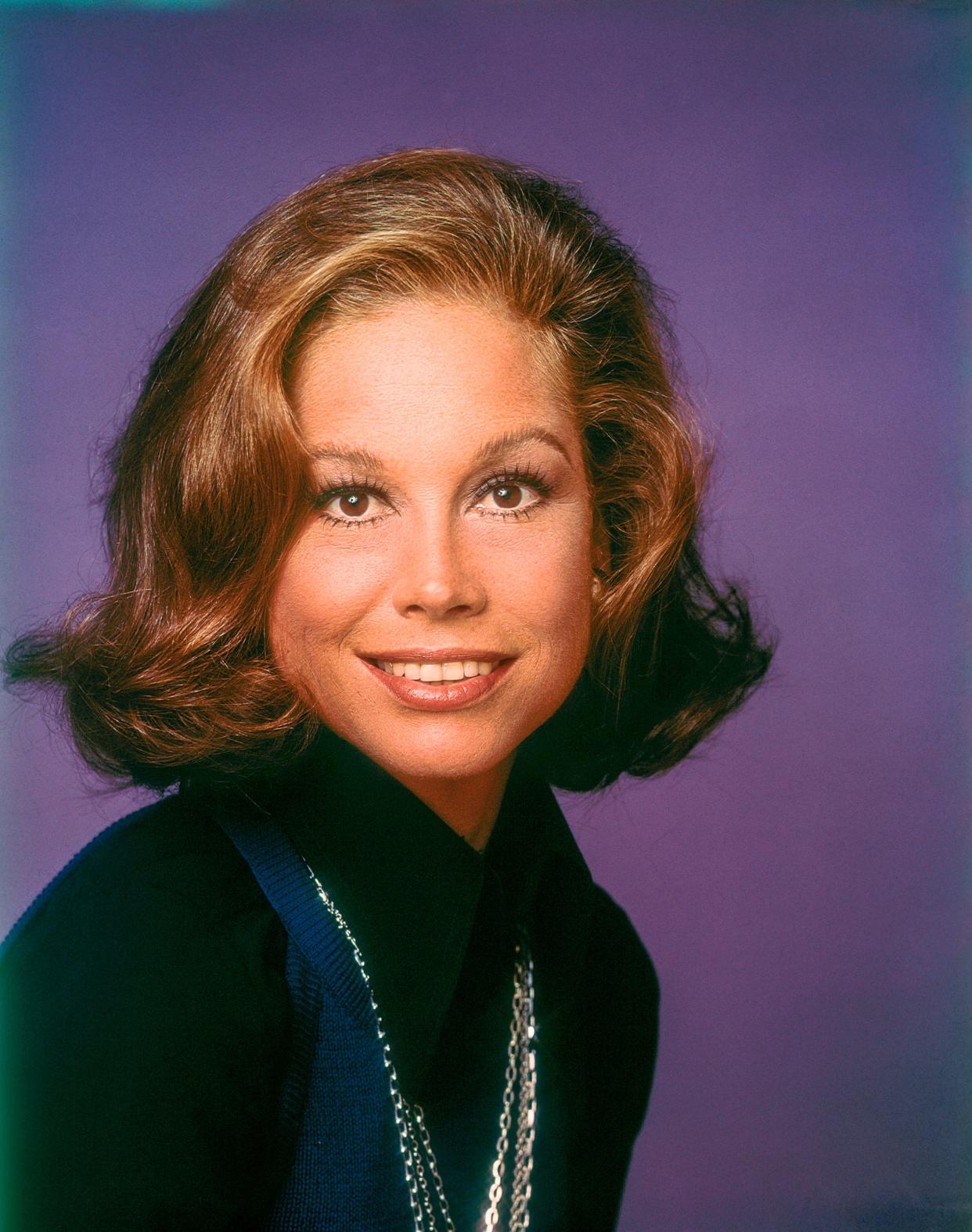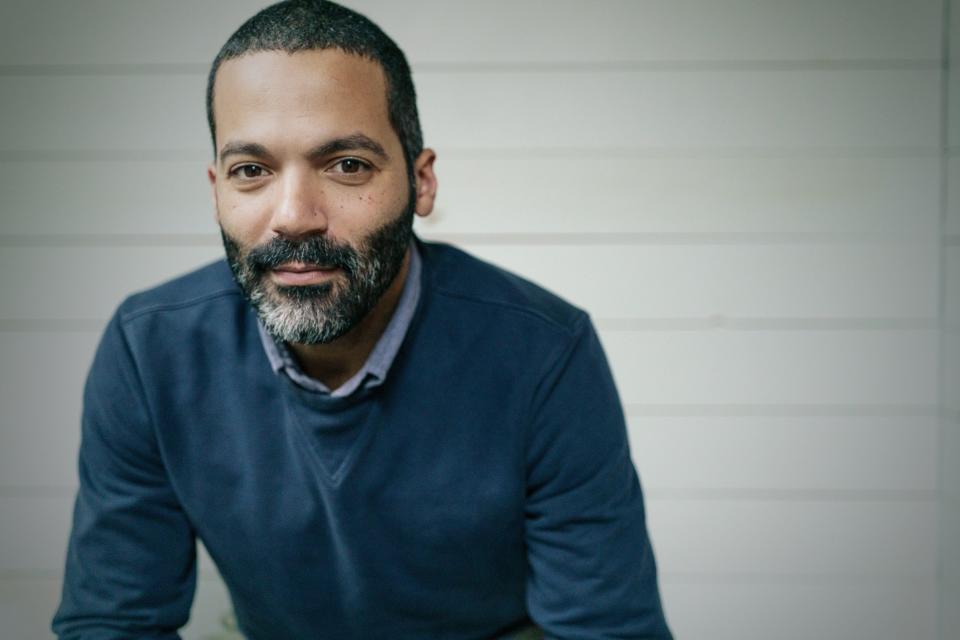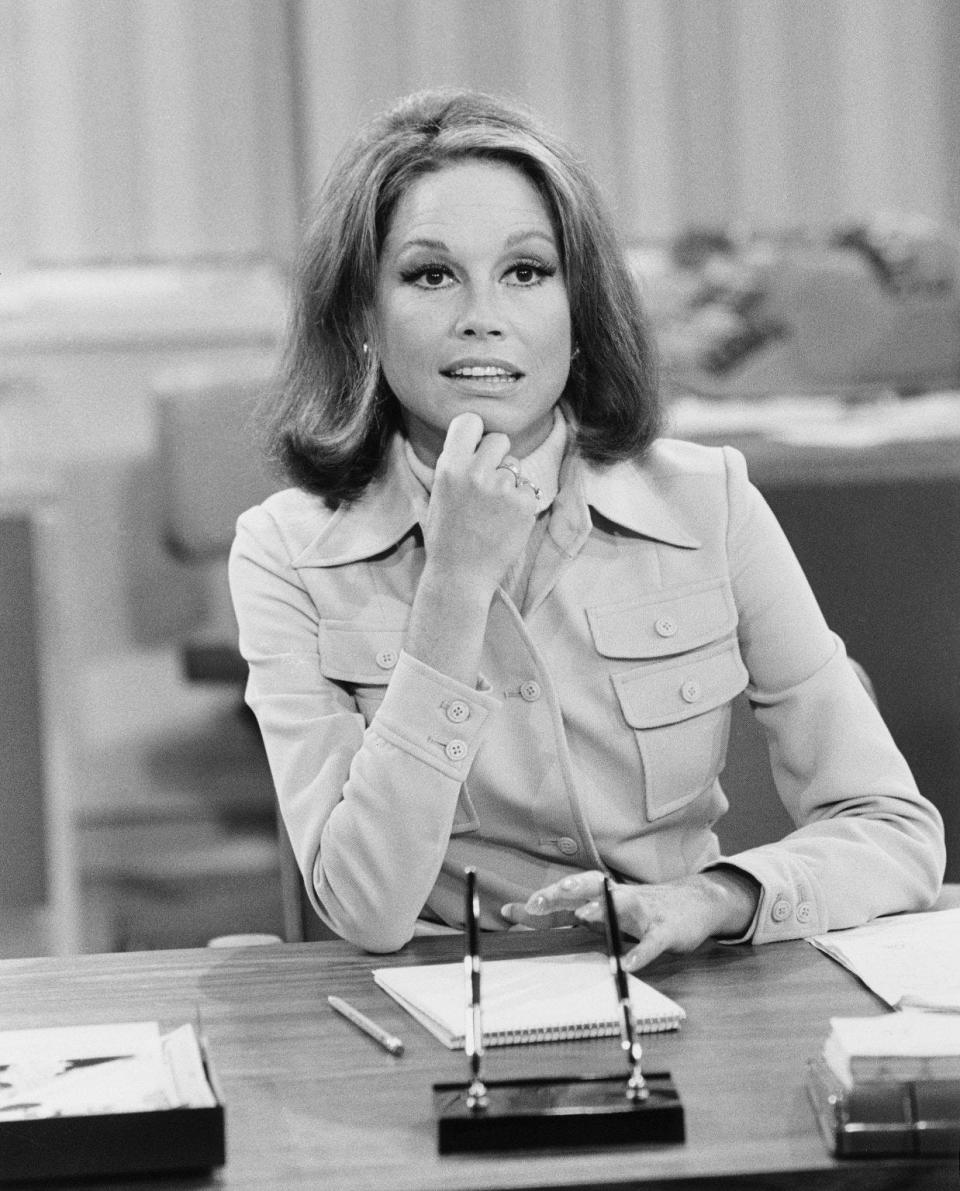Revealing Mary Tyler Moore documentary explores TV icon's triumphs and traumas

- Oops!Something went wrong.Please try again later.
Looking back on her breakthrough role on “The Dick Van Dyke Show,” Mary Tyler Moore once said to an interviewer: “Laura Petrie led a very dull life, didn’t she? … She didn’t really light up until Rob walked in the door and tripped over the ottoman.
Those who grew up watching Moore on television already know that she moved on from Laura Petrie, the character who made pants safe for TV housewives to wear in the 1960s, to her next character, Mary Richards, the single working woman who shattered small-screen glass ceilings in the 1970s.
As the star of “The Mary Tyler Moore Show,” she lit up rooms with her own power. In fact, she turned the world on with her smile.
Today, younger generations may not appreciate or even know about Moore and her iconic contributions as an actor and advocate. Enter “Being Mary Tyler Moore,” a thoughtful documentary that explores her many achievements, joys and sorrows. There is nothing scandalous uncovered here: In her 1995 memoir, "After All," Moore dealt frankly with painful topics like her alcoholism, the neighbor who molested her when she was a child and her son’s accidental death.
What the film does offer is a loving, fully fleshed-out portrait of someone who carefully guarded her image and privacy, yet who changed lives through the characters she played and the impact she had as an advocate for juvenile diabetes education and research. The Free Press spoke to the documentary’s director, James Adolphus, to find out more about “Being Mary Tyler Moore,” which will screen April 29 and 30 as part of the Freep Film Festival before its debut in May on HBO.
The origin story of the production
Moore’s widower, Dr. S. Robert Levine, had been fielding requests from filmmakers interesting in telling her story, according to Adolphus. While reading a 2018 issue of Vanity Fair, he came across the cover profile of the multi-talented Lena Waithe, who was fresh off an Emmy win for comedy series writing. The story contained an Annie Leibovitz photo of Waithe watching an episode of “The Mary Tyler Moore Show."
Right around that time, Waithe also told the Hollywood Reporter that she wanted to make a biopic about Moore, noting that she had been "obsessed with 'The Mary Tyler Moore Show'" and had read Moore's autobiography more times than she could count.
Says Adolphus: ”For Robert in that moment, he couldn’t quite understand how Mary and her life and her legacy could impact Lena, who is an outspoken, unapologetically Black, queer woman from the south side of Chicago.”
Levine contacted Waithe and invited her to spend the day at the Connecticut home he shared with Moore, where she got to see her scrapbooks, scripts and artifacts. After that trip, says Adolphus, "She wanted all of the other fans of Mary Tyler Moore to experience something very similar, so she decided in that moment that the project had to be a documentary.”

How the director got to know the real Mary Tyler Moore
A cinematographer, producer and director of projects including ABC’s 2021 documentary series “Soul of a Nation,” Adolphus was working with Waithe on a Quibi project about sneaker culture, “You Ain’t Got These,” when she asked whether he’d be interested in helming the Moore movie. He says he told her immediately that he would need to do some catching up on her career.
“I had never seen a single episode of ‘The Mary Tyler Moore Show’ or ‘The Dick Van Dyke Show,’ and I managed to make it through undergrad and graduate film school without ever seeing ‘Ordinary People,’” he says, referring to the 1980 drama that earned Moore a best actress Oscar nod.
Adolphus says he gained an understanding of Moore from reading her memoir, which left him feeling “very connected to Mary.” The tone of the autobiography seemed to give a permission of sorts to explore the trauma of her life, along with the high points. Referring to one of his favorite on-camera interviews of Moore that’s featured in the film — a fairly candid conversation with then-Hollywood gossip queen Rona Barrett — he says: “I love the interview because Mary was very open to answering every question that Rona posed. I’ve watched the tape a hundred times and she never declined to answer anything.”
Adolphus says he thinks a lot about whether Moore would like the film, adding, "I hope wherever she is that she has access and is smiling down upon us.”

The biggest challenge making the documentary
Adolphus and his team were committed to telling the story as much as possible through Moore’s own voice (along with interviews with friends, relatives and colleagues like “Mary Tyler Moore” director Jim Burrows, co-star Ed Asner and script writers Treva Silverman and Susan Silver). “It was deeply important to me and the team that Mary was able to have the first and the last word,” he says.
There was a vast amount of footage of Moore's performances and other clips from her professional life, but it proved harder to find clips of unguarded moments with Moore — the sort of home movies that reveal the everyday person behind the celebrity. Still, Adolphus notes, he didn't give up hope.
About nine or 10 months into the year-long editing process, he and the film’s editor, Mariah Rehmet, were visiting Levine at home when Rehmet asked him about a YouTube clip of Mary that seemed like an excerpt from a home movie. Levine told him that if he had filmed it, the tape would be in the basement. Thus, they discovered a wall filled with videotapes that “really elevated the storytelling, just as we approached the eleventh hour,” says Adolphus. Through clips like Moore relaxing at home with Levine, viewers learn more about the period of happiness that came later in her life with their romance.
Why younger generations should care about Moore
As a person, Moore set an important example by reinventing herself after the end of “The Mary Tyler Moore Show.” In addition to finding personal happiness by moving to New York City and meeting Levine and stretching beyond her sweetheart image with hit roles on Broadway in “Whose Life Is It Anyway?” and in cinema in “Ordinary People,” Moore used her clout to gain attention for juvenile diabetes. She worked as an international chairwoman of the Juvenile Diabetes Foundation and testified before Congress to lobby for more funding and research.
And beyond those humanitarian efforts, Moore was a true social force through her acting. Adolphus says he would tell anyone unfamiliar with Moore that everyone from Katie Couric to Michelle Obama to Oprah Winfrey to Julia Louis-Dreyfus to, really, women leaders across the spectrum of professions drew inspiration from her portrayal of Mary Richards.
“The number of folks that I have met that have told me they were inspired by Mary Tyler Moore is profound. ... Most of the people that are living today that (today’s young people) are inspired by, those folks themselves were first inspired by Mary Tyler Moore. Mary paved the way for today’s icons. She was the original.”
Contact Detroit Free Press pop culture critic Julie Hinds at jhinds@freepress.com.
'Being Mary Tyler Moore'
Screening as part of the Freep Film Festival
12:30 p.m. April 29, noon April 30
Michigan Science Center
5020 John R, Detroit
$15
For more information, go to FreepFilmFestival.com.
The film debuts May 26 on HBO and HBO Max and also will screen at 6 p.m. May 6 at the Michigan Theater in Ann Arbor. Proceeds from the event will go to the Mary Tyler Moore Vision Initiative programs at the University of Michigan.
This article originally appeared on Detroit Free Press: Mary Tyler Moore documentary is highlight of Freep Film Festival

